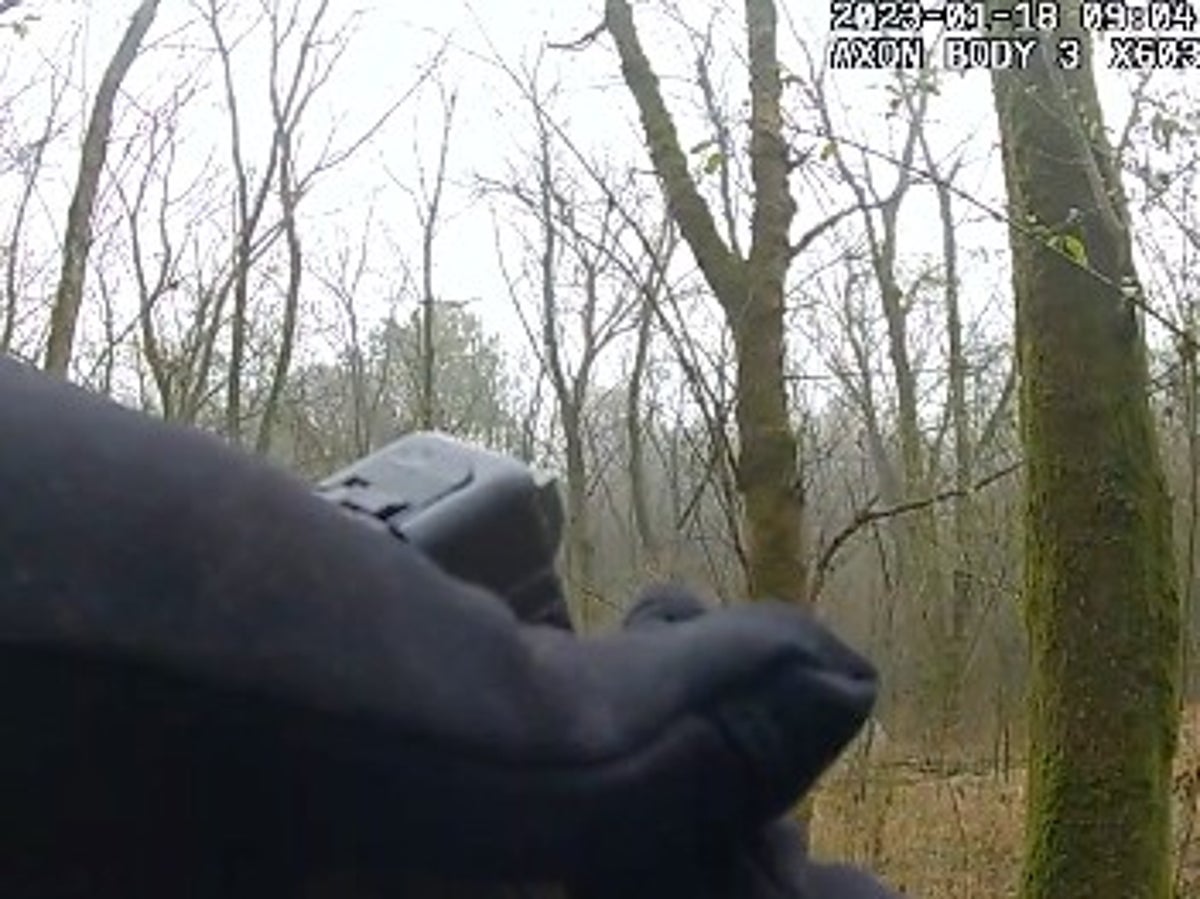
Atlanta police have released body camera video of the fatal “Cop City” activist shooting which suggests that an officer was struck by friendly fire.
Protester Manuel Esteban Paez Teran was shot and killed during the incident, with authorities claiming that he was killed after opening fire on the Georgia State Patrol trooper.
A private autopsy carried out by Paez Teran’s family determined that the 26-year-old had been shot at least 13 times by officers.
Now, newly released APD body cam videos shows the aftermath of the 18 January shooting at the site of the planned Atlanta Public Safety Training Center, known as Cop City, in DeKalb County.
Officials say that while GSP was part of the operation to clear the site of protesters, troopers do not wear body cams and there is no footage of the actual shooting.
The Georgia Bureau of Investigation has said that Teran did not follow officers’ commands as they tried to clear the area leading to an exchange of gunfire, which led to the trooper being shot and injured.
Investigators say that a ballistics test shows that the trooper was shot by a bullet from Teran’s gun, which had had legally purchased.
In one of the videos after the trooper shooting, an Atlanta PD officer can be heard saying “Did they shoot their own man?” and another saying “it sounded like suppressed gunfire.”
As police say over the radio that a trooper has been shot, an APD officer can be heard saying “Man...you f***ed your own officer up?”
“The videos released by the City of Atlanta raise more questions than they answer, but confirm the family’s worst fears that Manuel was massacred in a hail of gunfire,” the family said in a statement.
“The videos also show the clearing of the forest was a paramilitary operation that set the stage for the excessive use of force.”
The $90m Atlanta Public Safety Training Center has been the site of “Stop Cop City” protests and occupations since it was proposed in 2021.
The facility, which will include mock urban environments for militarised police training, is being financed in part by the privately backed Atlanta Police Foundation, and critics say it harms the environment, wipes out valuable green space, desecrates Native American land, and was passed by the Atlanta city council despite vigorous community disapproval during public comment sessions.







